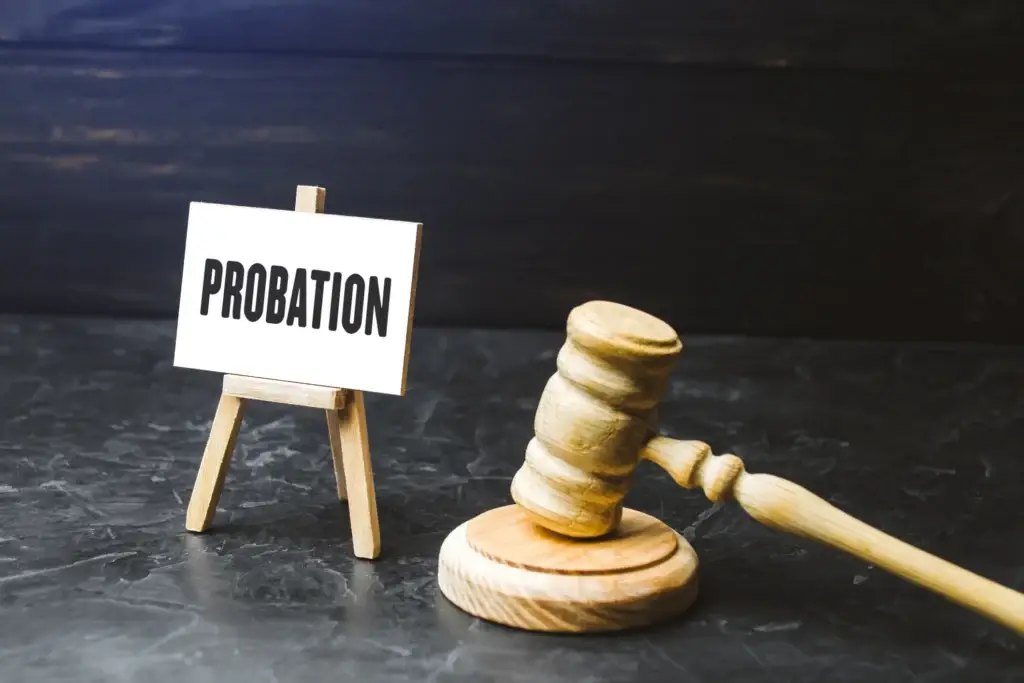April 21, 2025
Understanding the Costs of Court-Mandated Alcohol Awareness Classes: What You Can Expect and How to Manage Expenses

If you’ve recently been ordered by a court, probation department, or state agency (like the DMV) to attend an alcohol awareness class, you’re likely navigating a complex situation that involves legal procedures, potential fines, and administrative requirements. Amidst these concerns, understanding the potential expenses associated with fulfilling this educational obligation is a significant priority for many individuals. Knowing what costs to expect, the factors that influence pricing, and how to identify affordable yet legitimate options can help reduce financial anxiety and empower you to make informed decisions that ensure both compliance and value.
In this comprehensive guide, specifically focused on keywords like “alcohol awareness class cost” and “DUI class price,” we will thoroughly examine the typical costs involved in court-mandated alcohol awareness classes. We’ll delve into the reasons why these classes have associated fees, break down average costs based on duration and format, shed light on potential hidden expenses to watch out for, offer practical strategies for managing and potentially reducing costs, and emphasize the crucial long-term value provided by investing in a high-quality, state-approved alcohol awareness course to avoid far more significant costs down the line.
Why Do Alcohol Awareness Classes Have Associated Costs? Understanding the Investment
It’s helpful to understand that while court-mandated alcohol awareness programs serve a public safety purpose, they are not typically funded by the state or court system. The fees associated with these classes cover the operational costs incurred by legitimate providers who develop, deliver, and administer these specialized educational programs. These essential costs include:
- Specialized Curriculum Development and Maintenance: Creating course materials that meet specific state and court educational standards requires significant investment. This involves input from professional educators, experts in substance abuse, legal advisors, and graphic designers to ensure the content is accurate, up-to-date (reflecting current laws and research), engaging, and effectively addresses the complex issues surrounding alcohol misuse. Curricula often need ongoing updates to stay current with changing laws and best practices.
- Accreditation and Licensing Fees: For a provider to be “state-approved,” they must undergo a rigorous review process and pay substantial initial and recurring fees to the relevant state agencies (like the DMV or Department of Health) and potentially accreditation bodies. Maintaining state approval involves ongoing administrative work, audits, and renewal fees to prove continued compliance with high standards. Finding a State-Approved Alcohol Awareness Course Online explains this process.
- Technology and Infrastructure (Especially for Online): Online course providers require robust, secure, and user-friendly technology platforms. This involves costs for website development and maintenance, secure server hosting, software licenses for learning management systems, continuous security updates to protect user data, and the technical infrastructure to deliver video content, interactive modules, and assessments reliably.
- Administrative Costs: Providers manage a range of administrative tasks, including processing enrollments, providing responsive customer service, maintaining accurate records of participant progress and completion, and issuing official certificates upon successful course completion. These functions require trained staff and administrative systems.
- Instructor and Expert Compensation: Even for online courses, the curriculum is developed and often overseen by qualified instructors or subject matter experts whose expertise is factored into the cost. Support staff who answer questions about course content also contribute to this.
- Marketing and Outreach: Providers need to market their services to reach individuals who require the class and inform them of their state-approved status.
These necessary operational factors mean that even non-profit organizations or programs offering low-cost options must charge some form of tuition or fee to sustain the quality, legitimacy, and accessibility of their services.
Typical Costs of Court-Mandated Alcohol Awareness Classes: What to Expect
The cost of a court-mandated alcohol awareness class is not fixed and can vary considerably. Several factors influence the final price you will pay, most notably the class duration and the format of delivery.
Even non-profit organizations or programs offering low-cost options must charge some form of tuition or fee to sustain the quality.
Class Duration is a Primary Cost Factor:
Alcohol awareness courses are typically standardized into different lengths to correspond with the severity of the offense or specific court requirements. The cost directly correlates with the number of hours required:
- 4-Hour Classes: Commonly mandated for minor offenses like underage drinking or basic public intoxication. The typical cost range is approximately $25 – $60.
- 8-Hour Classes: Frequently required for more significant first-time offenses, such as a standard first-offense DUI or DWI. These courses are more in-depth and thus cost more. The typical range is usually between $60 – $150.
- 12-Hour Classes: Often mandated for more severe first-time offenses or repeat alcohol-related incidents. These cover extensive material. The cost commonly ranges from $100 – $250 or more.
- Longer Courses (e.g., 16-hour, 20-hour, 24-hour): Required for serious or multiple offenses, these programs naturally carry the highest costs due to the significantly increased volume of material, assessments, and instructional time represented in the curriculum.
Format (Online vs. In-Person) Impacts Cost:
The method of delivery also significantly influences pricing:
- In-Person Classes: Traditionally, classroom-based courses tend to be more expensive. This is because providers incur costs for renting or maintaining physical classroom space, paying instructors for each session they teach, and dealing with fixed scheduling that may limit class sizes.
- Online Classes: Generally, online alcohol awareness courses are more affordable. Their operational costs are lower (no physical rent, scalable technology allows one course instance to serve many students, less need for staff per student). These reduced overhead expenses are often passed onto the student, resulting in lower course fees. Online courses also save you money on travel expenses (gas, public transport, parking) and potentially lost wages if you had to take time off work for a fixed class schedule. Learn more about the cost and convenience differences in our detailed comparison post: Online vs. In-Person Alcohol Awareness Classes.
Provider Reputation, Quality, and State Influence:
While duration and format are key, other factors play a role:
- Provider Reputation and Quality: Established, high-quality providers who consistently invest in maintaining top-tier technology, robust customer support, and extensive state accreditations sometimes have slightly higher course fees. This higher price often reflects a proven track record, guaranteed court acceptance, and reliable service, which can be well worth the investment to avoid future complications. How to Verify if an Online Alcohol Awareness Class is Legitimate stresses the importance of choosing legitimate providers regardless of cost.
- State/Jurisdiction Specifics: Costs can also be influenced by regulations or market conditions within a specific state or county. Some jurisdictions may have rules that indirectly affect pricing, or the level of competition among approved providers in a particular area can impact costs.
Beware of Potential Hidden Costs to Be Aware Of
Beyond the advertised course fee, it’s crucial to inquire about and understand any potential additional or “hidden” costs before you enroll. Unscrupulous or less transparent providers may charge extra for services that should arguably be included in the base price. Common hidden fees include:
- Certificate Delivery Fees: While most reputable online providers offer immediate digital certificates (PDFs) for free upon completion, some may charge extra fees for:
- Downloading or accessing the digital certificate.
- Mailing a physical copy of the certificate.
- Expedited processing or shipping for a physical certificate if you’re in a rush.
- Retake Fees for Tests: Most high-quality online courses allow multiple attempts to pass quizzes and the final exam within the initial course fee. However, some providers may charge a small fee for each retake attempt after a certain number of free tries. Understanding the retake policy and associated costs is important. What Happens if You Fail an Alcohol Awareness Class? and Do Online Alcohol Awareness Classes Include Tests? discuss testing and retake opportunities.
- Late Enrollment or Rush Fees: If you are enrolling very close to a court deadline, some providers may charge an extra fee to accommodate last-minute registration or ensure expedited processing if they handle certificate submission for you (though you are usually responsible for submission – Alcohol Awareness Class Certification: How Long Is It Valid?
- Program or Enrollment Fees: Some providers may list a low course fee but add a separate, sometimes substantial, “program” or “enrollment” fee during the checkout process.
- Identity Verification Fees: Certain online courses, particularly those for more serious offenses or in specific states, may require identity verification using a third-party service, which could involve a small additional fee.
- Access Period Extension Fees: If you fail to complete the course within the provider’s time limit (separate from your court deadline), they may charge a fee to extend your access to the course materials.
Always ask for a clear breakdown of all potential fees before you make a payment. The advertised price should ideally be the total price you pay for standard completion and certificate access.
Strategies to Reduce or Manage the Costs of Your Alcohol Awareness Class
Navigating the costs is manageable with informed planning. Consider these strategies to reduce or manage expenses:
- Prioritize State-Approved Online Providers: As highlighted earlier, online courses are generally more affordable than in-person ones. Crucially, ensure the online provider is state-approved for your specific needs Finding a State-Approved Alcohol Awareness Course Online. This offers the best balance of affordability and guaranteed acceptance.
- Enroll Early to Avoid Late Fees: Register for your course as soon as possible after receiving your court order. This prevents potential late enrollment or rush fees and gives you ample time to complete the course comfortably, use any free retake attempts if needed, and handle certificate submission without needing costly expedited options.
- Compare Total Costs of Approved Providers: Once you have identified a list of state-approved providers for your jurisdiction and required course length, compare their total costs, including the base fee and any potential fees for certificate access or retakes. Look for providers who offer free, immediate digital certificates and multiple free test retakes.
- Check for Payment Plans or Discounts: Some reputable online providers understand that finances can be strained after legal issues. They may offer payment plans that allow you to split the cost over time or provide occasional promotional discounts (e.g., holiday specials, early enrollment discounts). Check their website or contact customer service to inquire.
- Review Your Court Order for Low-Cost Options: While rare, some court orders might point you towards specific non-profit organizations or community-based programs that offer lower-cost or sliding-scale fees based on income. Always verify these options with your court or probation officer.
Register for your course as soon as possible after receiving your court order.
Does Insurance Cover Alcohol Awareness Classes?
A frequent question is whether health insurance or car insurance will cover the cost of a court-mandated alcohol awareness class.
- Health Insurance: Typically, standard health insurance plans (like those covering medical treatment or counseling) do not cover educational programs like court-ordered alcohol awareness classes. These are generally considered part of legal or administrative requirements, not medical treatment.
- Car Insurance: Car insurance does not cover the cost of mandated classes. Their connection to these classes is related to potential premium adjustments based on completion, not payment for the course itself. Alcohol Awareness Classes and Insurance Discounts discusses this in more detail.
- HSAs/FSAs: In some cases, funds from a Health Savings Account (HSA) or Flexible Spending Account (FSA) may be eligible for reimbursement for certain court-ordered programs if they are deemed to have a medical nexus (e.g., related to a diagnosis). However, this is not guaranteed and you would need to confirm eligibility directly with your HSA/FSA administrator and potentially provide supporting court documentation.
In most scenarios, you should expect to pay for the alcohol awareness class out-of-pocket.
Why Investing in a Quality, State-Approved Course is Worth the Cost
While managing expenses is important, choosing the cheapest possible class without verifying its legitimacy can be the most expensive mistake you make. Investing in a quality, state-approved alcohol awareness course offers significant long-term value that far outweighs the course fee:
- Guaranteed Court and DMV Acceptance: The peace of mind knowing your certificate will be accepted by the mandating authority is invaluable. Choosing a non-approved course means your time and money were wasted, and you’ll have to pay again for a legitimate class, potentially facing legal non-compliance issues in the meantime.
- Effective Education for Prevention: A high-quality, state-approved curriculum is designed by experts to be truly educational and impactful. This meaningful learning experience is more likely to achieve the goal of reducing future alcohol-related issues, which saves you exponentially more money and stress in the long run by helping you avoid future legal costs, fines, license issues, and insurance hikes. Benefits of Taking an Alcohol Awareness Class Voluntarily and Reasons Courts Order Alcohol Awareness Classes discuss the value of this education.
- Reliable Support and Guidance: Reputable providers invest in customer support. If you encounter technical issues with an online course or have questions about obtaining your certificate or submitting it, a quality provider’s support team can save you significant time and stress, ensuring smooth completion and compliance.
- Streamlined Compliance Process: Choosing a well-regarded, state-approved provider makes the entire process smoother, from enrollment to certificate issuance and potential submission guidance. This reduces the chances of administrative errors that could lead to costly delays or complications with the court or DMV.
This depends on the provider’s policy. Reputable providers who explicitly guarantee state or court acceptance for a specific jurisdiction will often offer a refund if their course is rejected due to their approval status being inaccurate. However, if the course is rejected because you failed to verify acceptance for your specific case or chose the wrong course length, a refund is unlikely. Always verify acceptance before enrolling and check the provider’s refund policy.
Truly free, court-approved alcohol awareness courses are extremely rare due to the operational costs involved in meeting state standards and administration. Be extremely cautious of any provider advertising “free” court-mandated classes; they are often not legitimate or state-approved. Always verify their legitimacy rigorously before providing any personal information or expecting their certificate to be accepted. Finding a State-Approved Alcohol Awareness Course Online] and How to Verify if an Online Alcohol Awareness Class is Legitimate are essential resources here.
Financial assistance is sometimes available, but it is limited. Some courts, probation departments, or local non-profit organizations may have information about low-cost providers or offer limited financial assistance programs based on income. You should inquire directly with your probation officer or the court clerk to see if any local options or resources are available in your area.
Some online and in-person providers offer payment plans, especially for longer, more expensive courses (like 12-hour or longer programs). This allows you to pay the course fee in installments rather than all upfront. Check the provider’s website or contact them to inquire about payment options.
This depends on the provider. Some require full payment upon enrollment, while others offer payment plan options.
No, the costs can vary from state to state due to differences in state regulations, the requirements for provider accreditation, and local market conditions.
No. The fee for the alcohol awareness class covers only the cost of the educational program itself. It does not cover court fines, legal fees, administrative fees from the DMV for license reinstatement, costs for installing an Ignition Interlock Device (IID), or any other penalties or requirements associated with your offense.
In some states, the relevant approving authority may set maximum allowable fees for alcohol awareness programs of a specific duration. However, in many states, providers set their own prices based on market rates and their operational costs, within competitive norms.
Yes, the cost of a legitimate alcohol awareness course always includes access to all required quizzes and the final exam. Testing is a mandatory part of the curriculum for state approval. Do Online Alcohol Awareness Classes Include Tests?
Red Flags to Avoid When Choosing a Provider Based on Cost
Be extremely cautious of any provider, online or in-person, that exhibits the following red flags related to pricing and transparency, as they may indicate a lack of legitimacy:
- Unusually Low, Suspicious Pricing: Prices significantly below the typical range for a course of that duration in your state should raise a major red flag. This can indicate they are not state-approved and have cut corners on curriculum development, technology, or administrative support.
- Lack of Transparency About Total Costs: Advertised prices that seem very low but require you to click through several pages to find out about additional mandatory fees (like program fees or certificate fees). A reputable provider will make the total cost clear upfront.
- Excessive Fees for Standard Services: Charging high fees for basic services like providing a digital certificate of completion or allowing a reasonable number of test retakes.
- High Pressure Sales Tactics Focused Only on Price: Providers who push heavily on being the “cheapest” without clearly highlighting their state approval status and the value of their program.
How to Verify if an Online Alcohol Awareness Class is Legitimate provides more red flags to watch out for, regardless of pricing.
Invest Wisely in Your Future with Courseable’s Affordable, Quality Classes
Navigating the costs of court-ordered alcohol awareness classes doesn’t need to be overwhelming or lead you to make risky choices. Choosing a reputable online provider like Courseable provides clarity, confidence, and convenience at an affordable price point that balances cost-effectiveness with guaranteed state approval and quality education.
Courseable offers:
- Affordable, Transparent Pricing: Competitive rates with no hidden fees for standard completion and immediate digital certificate access.
- Immediate Certification: No extra charges for instant PDF certificate delivery upon completion, saving you time and money.
- Guaranteed Court and DMV Acceptance: Our courses are fully state-approved and designed to be accepted by courts and DMVs nationwide, eliminating the risk of paying twice for a non-approved class.
- Exceptional Support: Professional and compassionate customer support teams are available to assist you, ensuring a smooth course completion experience without added stress or complications.
- Meaningful Education: Investing in our quality curriculum provides valuable knowledge to help you make responsible choices moving forward, preventing potentially far more costly future incidents.
Enroll Today in Courseable’s Affordable Online Alcohol Awareness Classes Courseable’s Affordable Online Alcohol Awareness Classes and fulfill your obligations without breaking the bank, with the assurance of state approval and quality education.

Alcohol Awareness Classes for Workplace Requirements: Your Comprehensive Guide to Employer-Mandated Training
Read More »Disclaimer: Always Confirm Specific Financial and Legal Details
This article provides general information and guidance regarding the potential costs associated with alcohol awareness classes for educational purposes only. It does not constitute financial advice, legal advice, or professional counseling. Specific course costs, fee structures, financial assistance options, and accepted providers vary significantly by state, jurisdiction, and individual provider and are subject to change. You must always consult directly with the specific course provider for their exact pricing and fee structure, and with your attorney, probation officer, or the court to confirm the exact requirements applicable to your specific situation and to inquire about any potential financial assistance options. Ensure you choose an accredited provider whose certificate will be accepted by the mandating authority.
Related Posts

Alcohol Awareness Classes and Probation: Understanding Your Requirements and Ensuring Compliance

How to Confidently Talk to Your Employer About a Court-Ordered Alcohol Awareness Class
Start Your Court Ordered Alcohol Class


